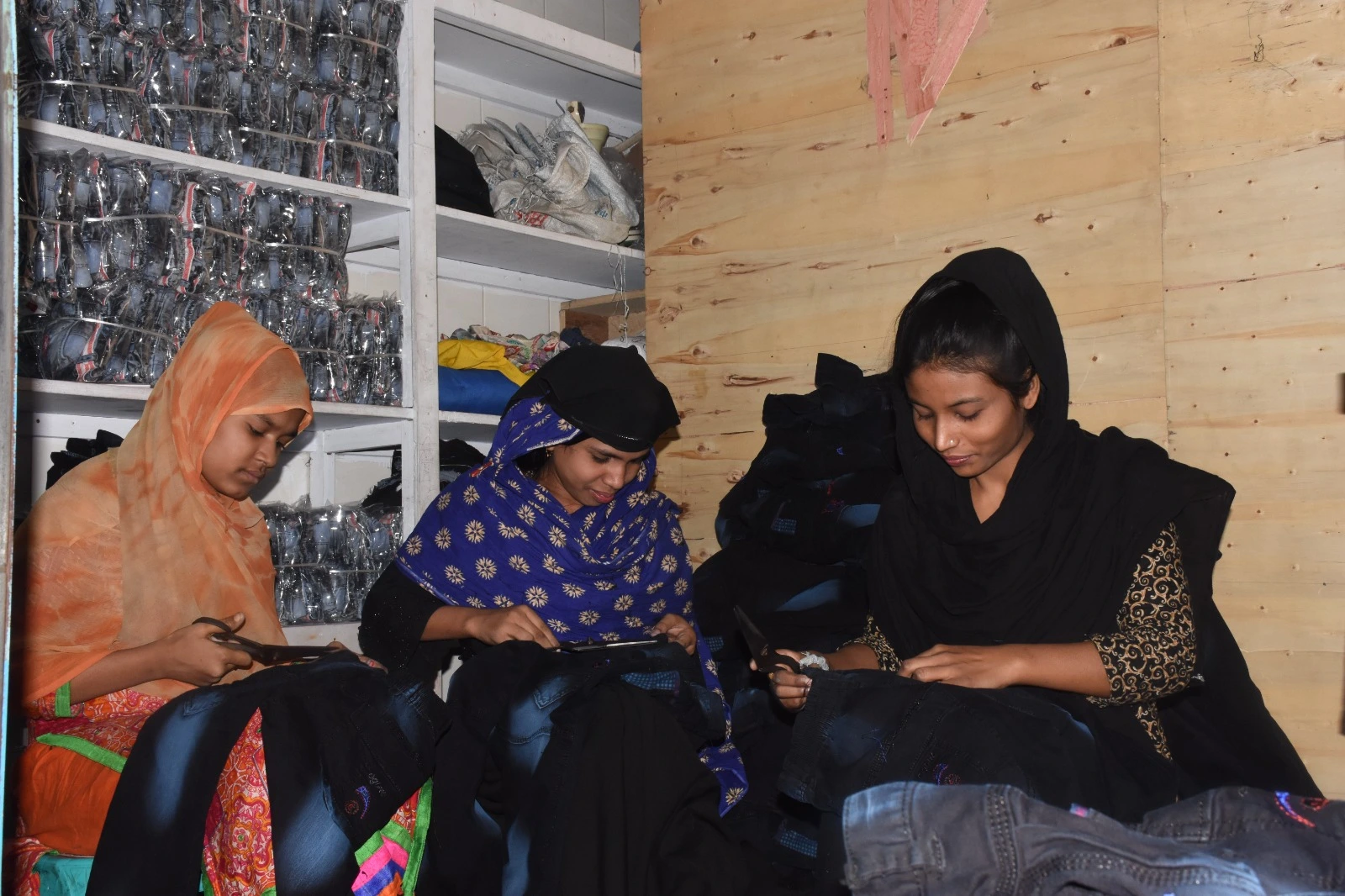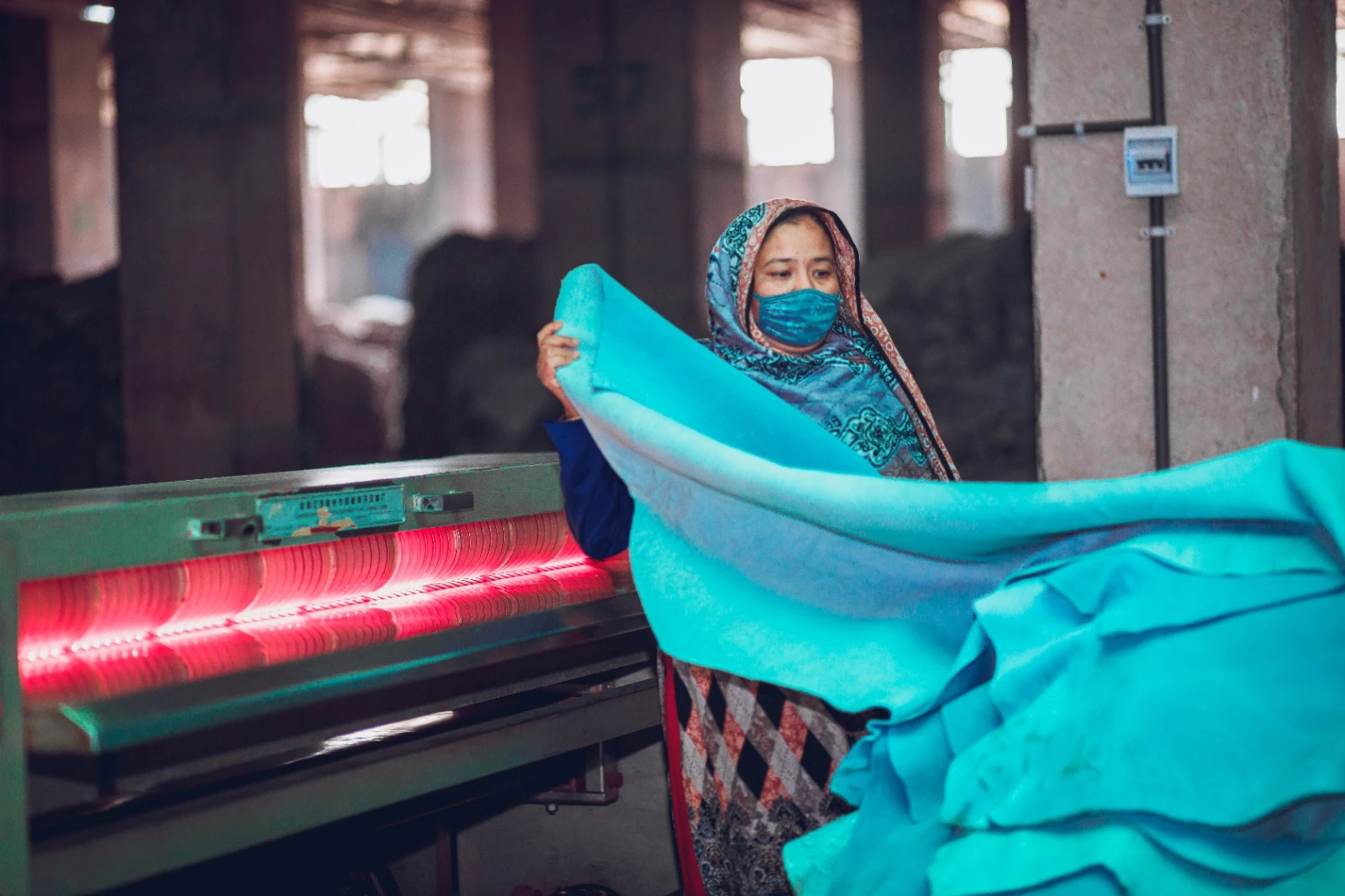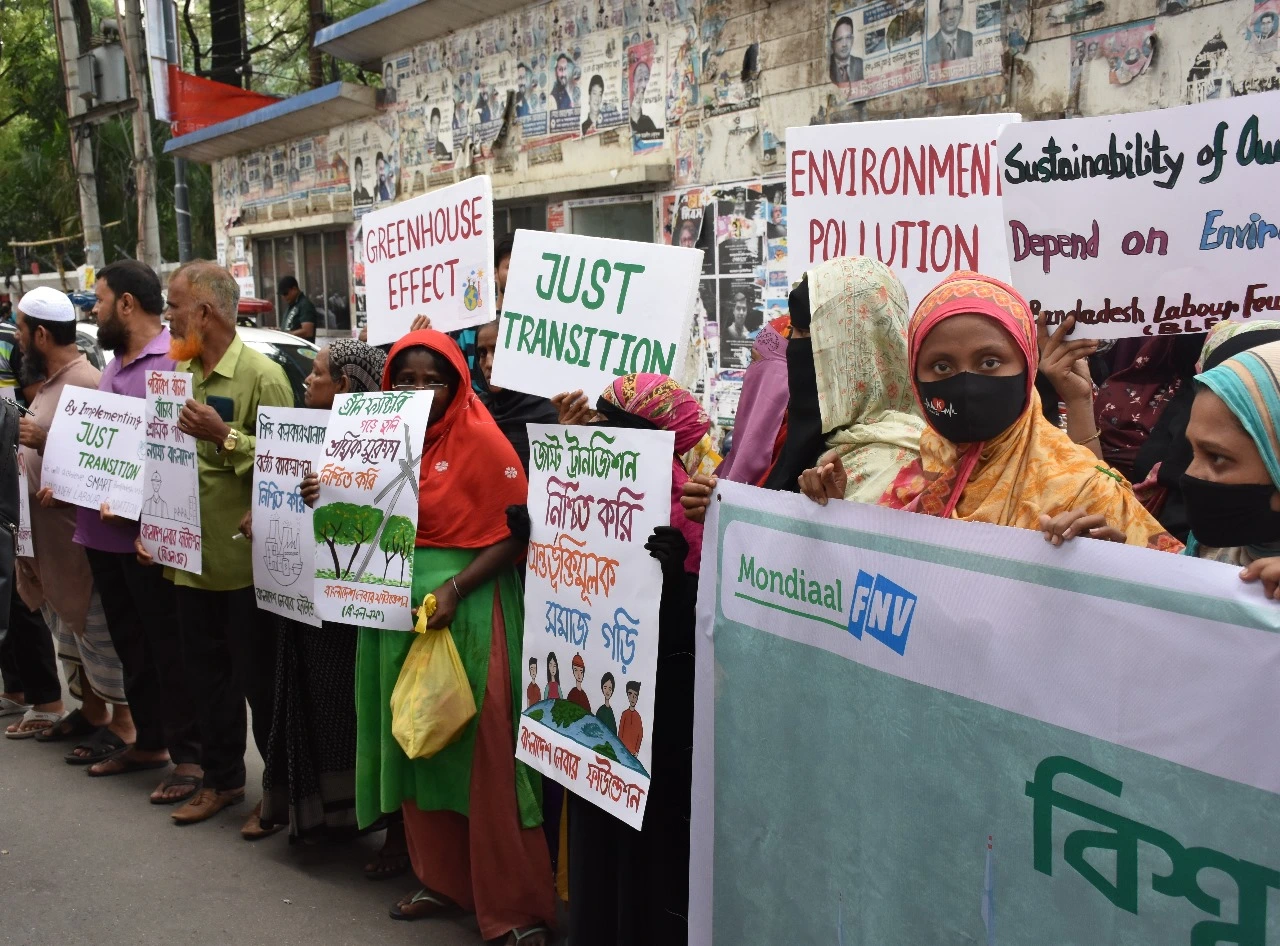Projects
Capacity Development of trade unions with appropriate advocacy and negotiation skill for adaptation of Artificial Intelligence and Lobby for establishing AI policy in the National level
Development Partner
Solidaridad Network
Location
Dhaka, Gazipur, Savar
Duration
May, 2024- December 2024
Overview
Bangladesh’s primary export sector is the Ready-Made Garment (RMG) industry. The Garment industry has grown to be the mainstay of the nation’s economy, and the “Made in Bangladesh” label has also elevated Bangladesh. Most Importantly, Bangladesh ranked second in terms of total garment exports, with $46.99 billion generated, according to the World Trade Organization’s 2023 World Statistical Review. Despite facing a number of challenging conditions both domestically and internationally, Bangladesh’s garment exports grew by 7.23% year-on-year in 2024, reaching $38.48 billion, according to the Export Promotion Bureau (EPB). To accelerate this inclination, the paramount action required is to enhance the business model of Bangladesh’s garment sector. Garment manufacturing is a labor-intensive business that has transitioned from developed to developing countries to decrease production costs. In this situation, automation has been a competitive advantage for countries because to rising demand and dynamism in the apparel industry.
However, its adaptation within Bangladesh’s RMG industry remains a critical issue. The industry has no alternative but to embrace this transition to remain competitive globally. Automation presents both challenges and opportunities for the RMG industry. It offers significant advantages including reduced production costs and lead times, higher efficiency with fewer defects and an enhanced ability to adapt to global fashion trends.
But failure to equip workers with the necessary skills for new technologies could lead to widespread job losses. Automation may create new job opportunities, but these roles will demand higher levels of skill and education. This risk is further exacerbated by the absence of a comprehensive social protection system to support displaced workers. Employers, trade unions, and policymakers have yet to prioritize these critical issues adequately. Addressing these gaps through skill development of workers, policy reforms and social protection measures is essential to ensuring a just transition for workers in the RMG sector.
With the support of Solidaridad Network Asia, Bangladesh Labour Foundation (BLF) has initiated this project to address these critical issues. The initiative aims to enhance the capacity of trade union leaders on the impact of automation in the RMG sector while also raising awareness among stakeholders and policymakers to safeguard workers’ rights during this transition.
Objectives
- Assessing the current status of automation, its impact on the workers and industry readiness.
- Enhancing the capacity of trade unions for advocacy and negotiation in regards to AI, automation and Just Transition.
- Advocating with the government, brands, employers, and other stakeholders to develop a national AI policy, strengthen social security schemes, strengthen skill development opportunities to ensure workers' well-being during and after the transition.
Outcomes
- Developed and evidence-based research which will help the trade union federations and civil society to advocate for National AI Policy.
- Knowledge and capacity of trade union leaders increased to address the challenges posed by 4IR and advocate for a Just Transition for workers.
- Employer’s Association, Brands and Government are sensitized on the impact of automation on workers and industry and collaboration increased to promote skill development and social security for the well-being of workers.
Major Activities
- An assessment on status of Automation, its impact on workers and industry readiness with recommendation for policy advocacy.
- Workshop with the Leaders, Youth and Women Leaders of Trade Union Federation to develop their capacity and strategy on automation to advocate for a Just Transition policy.
- Workshop for the Cluster-based Basic Trade Union Leaders for developing awareness on Automation and its impact on workers and importance of alternative skills.
- Consultation dialogue with the government on Status of Automation, Its impacts on workers, importance of skill development and alternative support for the workers.
- Consultation dialogue with Brands Forum/Brands/Buyers/Association to figure out the transition process and upskilling/re-skilling mechanism of the workers.
Sector

Textile
Thematic Area
Just Transition
Climate Change
Automation
Social Dialogue
Advocacy
Project SDGs Goals follow




















